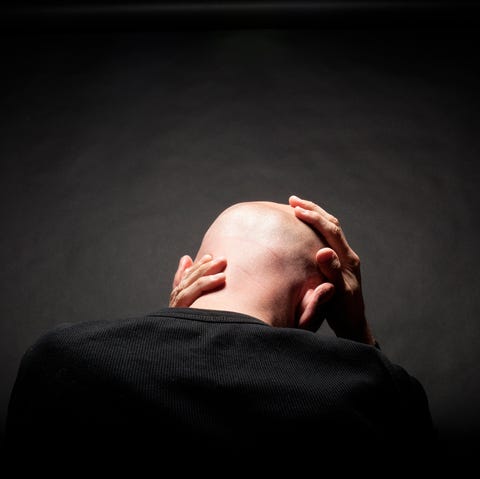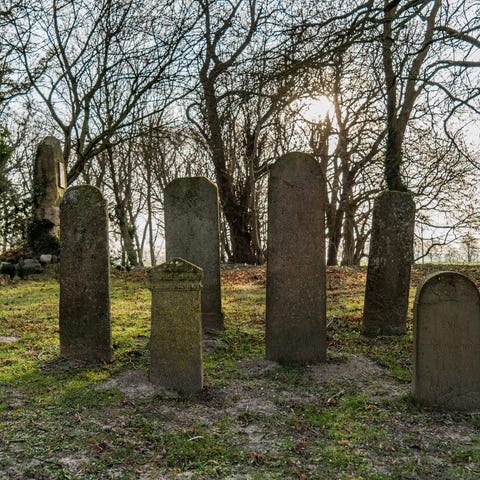My wife proudly flashed her phone in my direction the other day to show off a pictures he’d recently taken of me holding our young son in a swimming pool.I promptly grabbed the device and used my fingers to zoom in on my belly, whose size and general flabbiness I have been loudly and repeatedly bemoaning of late. “I knew you were going to do that,” she tsk’d.
She thinks I am being ridiculous about my gut—and she has a point. By any measure, I am slim. I eat reasonably carefully and work out at least six times a week. Yet I miss the visible ab musclesI had in my 30s. I miss more than that, actually. Now in my mid-40s (wait, is 47my late 40s?), I notice that I am increasingly criticizing myself for looking old and bedraggled. So why, considering this noxious little stew of narcissism and body dysmorphia, would you listen to me about aging gracefully? Because while
I do perseverate about this stuff, the amount of worry—and the way in which that affects my behavior—has improved dramatically. Here’s a comparison:
About ten years ago, I was in the throes of a balding crisis, an omnidirectional freak-out that bled into every area of my life. I was on a flight home from an incredible journey to report on an iso-lated indigenous tribe in the Brazilian Amazon. Instead of savoring the experience, I locked myself in the lavatory and spent ten minutes scrutinizing my hairline and engaging in a robust bout of what the Buddhists call prapañca, or “mental proliferation.” My mental movie went something like this: Baldness –>Unemployment –> Flophouse in Duluth. This prapañca made me irritable and miserable. Just ask my wife, Bianca, who caught me staring in our bathroom mirror many times during this period.

Getty ImagesGary John Norman
These days, my gut panic aside, I am much better at seeing my self-centered anxiety crop up and then letting it go. While writing this column, I askedBianca whether I am handling my belly/aging concerns more successfully than the balding crisis. She chortled and said,“There’s no comparison.”
What made things better? Part of it was the combined effect of marriage, maturation, and meditation (which has become a daily practice and also an active side hustle). But another important calming ingredient has been something that may strike you as supremely counterintuitive: contemplating death.
Somehow death has become taboo in our society. As the meditation teacher Greg Scharf has observed, in a youth-obsessed culture, dying is the ultimate in “really bad taste.” Yet it is inevitable—even for you. (And even for those tech titans in Silicon Valley who are reportedly spending billions to “solve” death. Good luck with that.) There’s a fitting line from the Mahabharata, the great Indian epic: “What is the most wondrous thing in the world?” The answer: “All around us people can be dying and we don’t realize it can happen to us.”

Getty ImagesTino Schning / EyeEm
Every great spiritual tradition has recommended that in order to live fully, the best practice is to contemplate death. How to do this? The Buddha recommended meditating while staring at decomposing bodies. Because of how deeply impractical that proposal is, my wife and I opted for a more feasible alternative: A few years ago, we signed up to become hospice volunteers.
I was assigned to a small, eight-bed hospice on Manhattan’s Upper East Side. Once I got over my initial jitters, I learned lessons that ranged from the inspiring to the deeply comforting. For example, I noticed that for many people who are close to the end, fear seems to recede. I recall chatting with a former college professor who told me that as death neared, he felt less like a separate ego and more like apart of a larger, unfolding system. Yes, I thought, there’s nothing wrong or unnatural about death. Nature is in constant flux—and we are nature.
I also found that spending time in a hospice provided a massive dose of perspective on my workaday problems. I experienced this most poignantly through my relationship with a patient named Ronnie, a former construction worker from Harlem with chronic lung and heart problems. When he was first sent to the hospice four years ago, he was given three days to live. Instead, he defied the odds and thrived. Every week, Ronnie and I eat snacks, crack wise, and play video games. (Ronnie sees no irony in the fact that he spends hours killing zombies while sitting in a hospice.) Onetime, I was telling him a story about
how I had been worrying about some issue in my life—and that I had then remembered Ronnie and stopped myself. Without even interrupting the game, he turned to me and said, with utter nonchalance, “Yeah, you have no problems.”
Working in a hospice is not a panacea, however. I often end up getting in a cab afterward, checking email, and becoming wholly caught up in my own nonsense again. And I still believe that there is actually some upside to my egoistic self-flagellation: A certain amount of awareness of my midsection can provide a healthy motivation to get to the gym.

Getty ImagesScience Photo Library
But on the 85th time I find myself musing darkly on my hairline or waistline, I now sometimes have the wherewithal to ask myself: Given my limited window on earth, is this how I want to be spending my time? Yes, it makes sense to work hard and strive, but what’s the point if you’re not enjoying the ride?
Aging gracefully isn’t some Yoda-style imperturbability. Your insecurities and peccadilloes remain; you just learn to manage them more skillfully.
I usually wrap up these columns with something witty, but due to the weight of this issue I will forgo the cute and put it to you bluntly: Given the undeniable reality of your finitude, how do you want to live?
When in doubt, just ask death.
Source: Read Full Article
